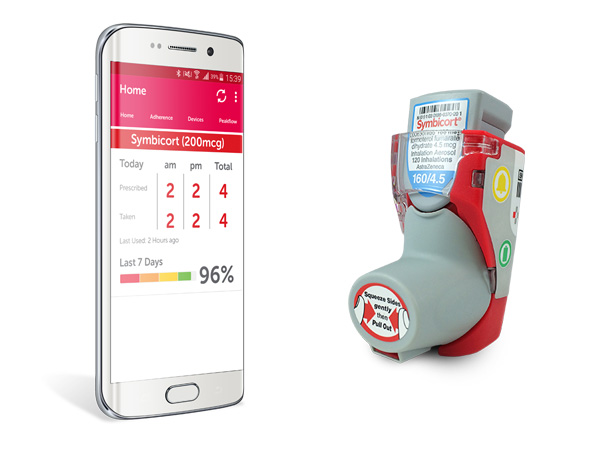Drugs and games don’t sound like a good mix for children, but when it comes to using asthma inhalers it can actually help keep them out of hospital.
Gamifying the process of using inhalers is just one of the tricks that Adherium (ASX:ADR) uses to get patients sticking to their medication regime.
The company makes a range of “Smartinhaler” devices that connect to an app via Bluetooth and give children updates on their phone about how well they’re using their puffer.
“We have a connected solution that comprises a device which is a set of sensors attached onto the patient’s prescribed inhaler that records the date and time of use of the drug,” Adherium founder Garth Sutherland told Stockhead.
“It also contains audio and visual reminders, actually on the device itself.”
Mr Sutherland said gamification was one of many techniques that were proven to help patients stick to their medication. In the case of Adherium’s system, for example, the app gives users a score to show how well they’ve done over the past week.

Backed by a drug giant
Adherium, based in New Zealand, got clearance from the US Food and Drug Administration last week to market its new device in the US.
It’s the third of Adherium’s systems to be approved in the US, and the first designed specifically for one particular inhaler — AstraZeneca’s Symbicort, which is used to treat asthma and chronic obstructive pulmonary disease.
AstraZeneca was one of the key investors in Adherium’s initial public offering to list on the ASX in 2015, and is one of its largest shareholders.
Mr Sutherland said one of the benefits of that was AstraZeneca could distribute the new device, and Adherium had already put it into mass production.
“We are the first device in the world, first company in the world, to provide a cleared electronic monitor for Symbicort in the US,” Mr Sutherland said.
Keeping kids healthy (and happy)
Mr Sutherland said Adherium had worked hard to makes its app as easy as possible to use in order to make sure that, well… kids actually used it.
“We worked really hard on making the app simple, and really not distracting the patient from doing anything they don’t need to do. So the app has just a couple of screens on it,” he said.
A year-long study at Sheffield Children’s Hospital in the UK last year found that the company’s Smartinhalers could significantly reduce hospital admissions for children with poorly-controlled asthma, as well as days off school and trips to the doctor.
“The major goal of our technology is to help patients adhere to their treatment regime, particularly with preventative medication,” Mr Sutherland said.
“If we look at asthma for example, we find that typically patients will take between one-third and one-half of what’s prescribed, across the whole population.
“As a result of that, large numbers of patients experience poor disease control. Examples of that are wheeziness, or night waking — they wake up in the middle of the night wheezing and out of breath — so disturbed sleep, irritability, reduced lung function, and it can impact on their ability to exercise.
“The more severe end of that is it can lead to unscheduled doctors’ visits and in some cases hospitalisation.”
Adherium’s shares closed at 9.5c on Friday, up almost 12 per cent after news of the US approval. They’ve traded between 8.9c and 45c over the past 12 months.
The company spent $3.9 million in the quarter to June, leaving $22.8 million in cash. It plans to spend $5.2 million in the current quarter, which will be offset by customer receipts.
Medication adherence is a growing problem around the world, especially in countries with ageing populations like Australia, as more people going to hospital means bigger healthcare costs.
Adherium isn’t the only company on the ASX trying to solve the issue — MedAdvisor (ASX:MDR) also makes an app designed to get people to stick to their prescription pills.
You might be interested in












